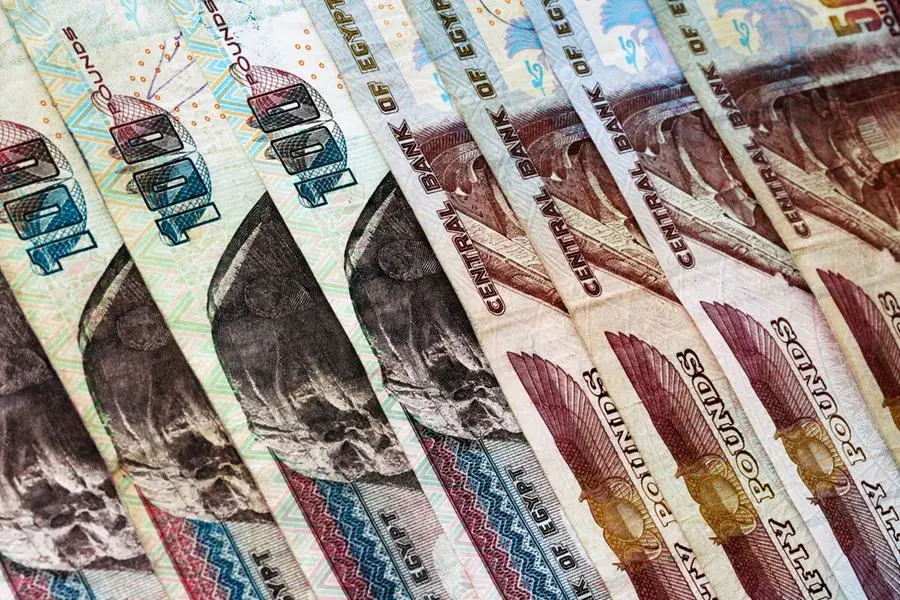PHOTO
Egypt’s balance of payments (BOP) deficit declines by 20.2% to $3.2bn in the first quarter (1Q) of fiscal year (FY) 2022/23, compared to $4bn in 1Q of FY 2021/22, according to the Central Bank of Egypt (CBE).
This came mainly due to the increase in tourism and Suez Canal revenues and merchandise exports (oil and non-oil).
Moreover, the capital and financial account recorded a net inflow of $4.4bn as the net FDI in Egypt doubled to $3.3bn. On the other hand, the 1Q witnessed withdrawal of portfolio investments in Egypt by non-residents to register an outflow of $2.2bn. This coincided with the contractionary monetary policies adopted by the Federal Reserve that led in turn to an exodus of hot money from the emerging markets. Against this background, the BoP recorded an overall surplus of $523.5m in July-September 2022.
The following factors contributed to decrease the current account deficit:
The non-oil trade deficit declined by $2bn to $9bn in 1Q 2022/23 against $11bn in 1Q 2021/22, driven by the increase in non-oil exports and the decrease in non-oil imports, as illustrated below:
Non-oil merchandise exports increased by 5.1% to $6.3bn in 1Q 2022/23 against $6bn in 1Q 2021/22. The increase was pronounced in the exports of phosphate/mineral fertilizers, gold, transmitter, and receiver devices of radio/television, and ready-made clothes. Non-oil merchandise imports decreased by 9.9% to $15.3bn against $16.9bn. The decrease was concentrated in the imports of passenger vehicles, telephones, pharmaceutical preparations, gauze pads, and vaccines.
Tourism revenues rose by 43.5% to $4.1bn from $2.8bn, due to the rise in the number of tourist nights by 47.1% to 43.6 million, and the rise in the number of tourist arrivals to Egypt by 52.2% to 3.4 million.
Transport receipts increased by 33.7% to $3bn against $2.3bn, as a main result of the rise in Suez Canal receipts by 19.1% to $2bn from $1.7bn, driven by the pickup in the net tonnage of vessels by 13.8% to 372.7 million tonnes.
The deficit of oil trade balance reached $106m. This came as a result of the surge in oil exports by $807.3m, on the back of the increase in natural gas exports by $1.7bn. Such a rise was curbed by the decline in exports of crude oil by $449.9m and oil products by $393.3m. Likewise, oil imports moved up by $812.2m, mainly due to the hike in imports of oil products by $767.7m.
The factors that affected the current account:
Egyptian workers’ remittances went down by 20.9% to $6.4bn against $8.1bn.
Investment income deficit expanded by 16.8% to $4.5bn from $3.9bn, as a confluence of the following developments: Investment income payments went up by $815.4m to $4.8bn against $4bn, reflecting the rise in both earnings on FDI in Egypt and interest payments on external debt.
Investment income receipts also moved up by $163.8m to $275.8m against $112m, mainly due to the higher interest on residents’ deposits at banks abroad.
The capital and financial account revealed a net inflow of $4.4bn in 1Q 2022/23 against $6bn in 1Q 2021/22, as a result of the following developments:
Net FDI in Egypt doubled to $3.3bn in 1Q 2022/23 against $1.7bn in 1Q 2021/22. The net inflows of FDI in non-oil sectors moved up to $3.6bn in 1Q 2022/23 against $2.2bn in 1Q 2021/22, mainly due to the rise in both the proceeds of selling local entities to non-residents to $1bn in 1Q 2022/23 from $56.7m in 1Q 2021/22, and net greenfield investments & capital increases of existing companies to $1bn from $464.7m.
Meanwhile, net retained earnings stabilized at $1.4bn
The net outflows of FDI in the oil sector retreated to $320.5m against an outflow of $489.2m.
This came on the back of the rise in total inflows (representing new investments of foreign oil companies) to record $1.4bn against $1.2bn. The increase in outflows (representing the cost recovery for exploration, development and operations previously incurred by foreign partners) by $24.2m to $1.7bn.
Portfolio investment in Egypt recorded a net outflow of $2.2bn against a net inflow of $3.6bn in 1Q 2022/23. This exodus of investment eflected investors’ concerns over the Russian-Ukraine conflict, as well as the contractionary monetary policies adopted by the Federal Reserve that led to the flight of hot money from the emerging markets.
Change in the liabilities of the CBE posted a net inflow of $652.4m.
© 2022 Daily News Egypt. Provided by SyndiGate Media Inc. (Syndigate.info).





















